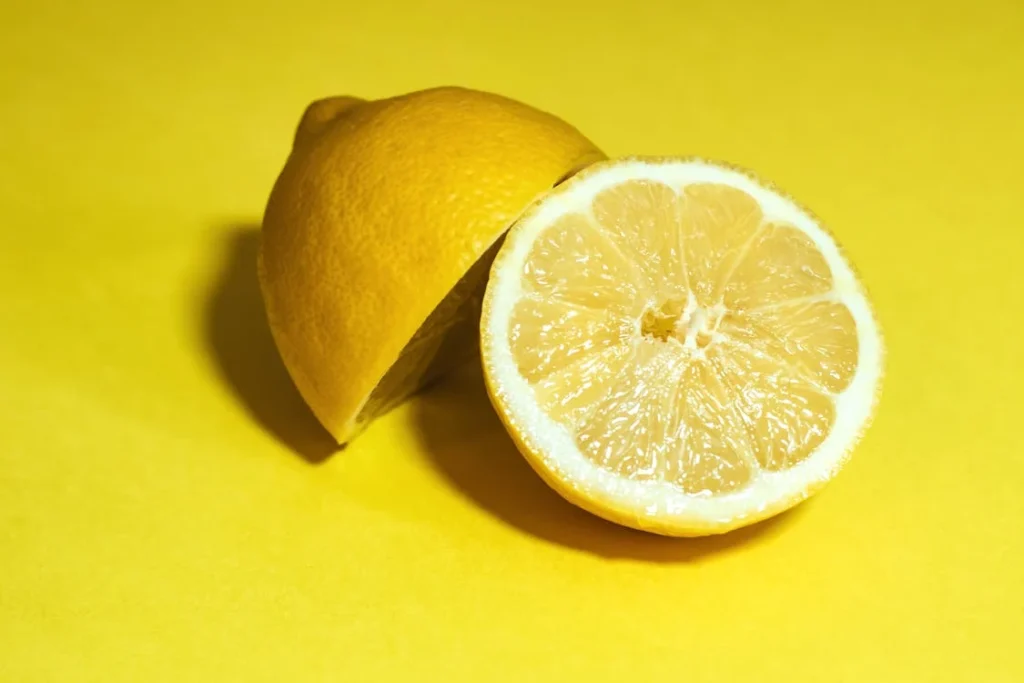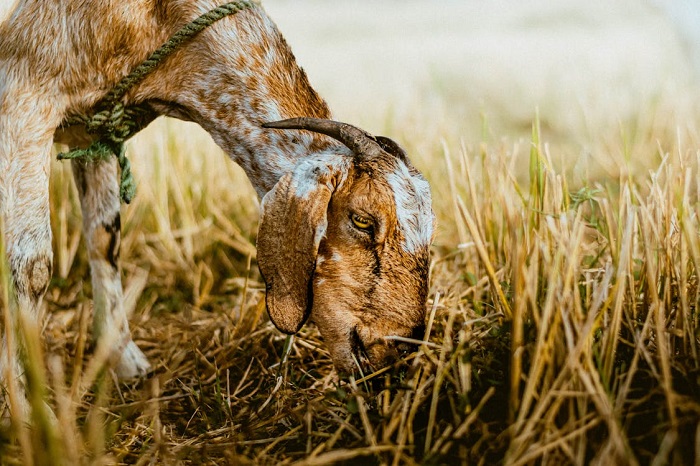Sharing citrus fruits with your goats can seem like a delightful way to bond and offer a refreshing summer treat. But with their tart and acidic nature, lemons might not be the best choice. So, can goats eat lemons? The answer is a definitive no. While they might nibble out of curiosity, lemons are not safe or beneficial for goats and can cause health problems. This guide will explore the reasons why lemons should be avoided in a goat’s diet and provide alternative safe and delicious options to keep your caprine companions happy and healthy.
Why You Shouldn’t Feed Lemons to Your Goat
Since lemons are not recommended for goat consumption, there aren’t any specific health benefits associated with feeding them. In fact, they can be quite harmful.
Here’s why lemons pose a threat to your goat’s well-being:
- High Citric Acid Content: Lemons are packed with citric acid, which can irritate your goat’s digestive system and cause stomach upset, diarrhea, and bloat.
- Potential for Mouth Ulcers: The acidity in lemons can irritate the delicate tissues in your goat’s mouth, leading to painful ulcers.
- Reduced Appetite: The strong, sour flavor of lemons can be off-putting for goats and might lead them to lose interest in their usual, more nutritious food.
- Electrolyte Imbalance: In severe cases, excessive consumption of lemons can disrupt the electrolyte balance in your goat’s body, leading to potentially life-threatening complications.
- Choking Hazard: Lemon rinds, especially if whole, can pose a choking hazard for goats, particularly younger kids.
- Pesticide Contamination: Commercially available lemons might have been treated with pesticides or herbicides. These chemicals can be harmful to your goats if ingested.
How Often Should You Feed Your Goat Lemons?
Considering the potential drawbacks, it’s best to avoid offering lemons to your goats altogether. Their diet should focus on high-quality hay, balanced commercial feed, and safe browse options.
Can Baby Goats Eat Lemons?
Just like adult goats, baby goats, or kids, shouldn’t be given lemons. Their digestive systems are even more delicate and susceptible to upset from unfamiliar and acidic foods. Stick to a milk replacer formulated for kids and age-appropriate commercial feed until their digestive systems mature around 3-4 months old.

What Other Foods Can Goats Eat?
Goats are natural browsers and thrive on a variety of delicious and nutritious options:
- Grasses: A variety of grasses like orchard grass, brome, and fescue make up a significant portion of a goat’s diet. Ensure the grasses haven’t been treated with herbicides or pesticides before allowing your goats to graze.
- Weeds: Many common weeds like dandelions, clover, and plantain are safe and nutritious for goats. However, always identify weeds correctly before offering them to your goats, as some can be toxic.
- Shrubs: Goat-safe shrubs like willow, hazelnut, and blackberry bushes can be excellent sources of browse. Ensure the shrubs haven’t been treated with herbicides or pesticides before allowing your goats access to them.
- Fruits and Vegetables: Goats can enjoy occasional treats of fruits and vegetables like apples, pears, carrots, and pumpkins. Remember, these should be offered sparingly as treats, not dietary staples.
- Hay: High-quality hay provides essential fiber and roughage, especially during winter months when fresh forage is scarce. Choose hay varieties like alfalfa for growing goats and grass hay for adult maintenance.
Important Note: Always introduce new foods gradually to avoid digestive upset.
How To Give Your Goat A Healthy And Balanced Diet
Creating a balanced diet for your goats is key to their overall health and well-being. Here are some essential components:
- High-Quality Hay: Hay should be the foundation of your goat’s diet, providing them with the necessary fiber for proper digestion. Aim for at least 2-3 pounds of hay per adult goat daily.
- Commercial Feed: A balanced commercial goat feed formulated for their specific age and life stage fills nutritional gaps and ensures they receive essential vitamins and minerals that might be lacking in their regular forage. Follow the feeding guidelines on the feed bag based on your goat’s weight and activity level.
- Fresh Water: Clean, fresh water is vital for all animals, including goats. Ensure they have constant access to a clean water source.
- Mineral Lick: A mineral lick provides essential minerals like calcium, magnesium, and sodium that might be lacking in their regular diet. Choose a commercially available mineral lick specifically formulated for goats.
- Browse: Offering a variety of safe browse options like grasses, weeds, and approved shrubs can enrich your goat’s diet and provide them with mental stimulation. However, prioritize hay and commercial feed for their core nutritional needs.
- Limited Treats: Occasional treats like fruits and vegetables, or a small amount of safe alternatives (explored below), can be offered in moderation. Remember, these are not replacements for a balanced diet.

Consulting a Veterinarian:
For personalized dietary advice specific to your goat’s breed, age, and health condition, consulting with a veterinarian is highly recommended.
Final Verdict: Lemons – A Sour Subject For Goats
Lemons, with their vibrant yellow color and sharp citrus aroma, might seem like a tempting treat for your goats. However, their high acidity and potential health risks make them unsuitable for goat consumption. Stick to offering a balanced diet rich in high-quality hay, commercial feed, fresh water, and essential minerals. There are plenty of delicious and safe alternatives to explore when it comes to treats for your caprine companions.
Explore These Delicious and Safe Treat Options:
- Fruits: Goats can enjoy occasional treats of apples, pears, bananas (in moderation due to the sugar content), and melons. Cut them into bite-sized pieces to avoid choking hazards.
- Vegetables: Carrots, sweet potatoes, broccoli florets, and green beans are all safe and healthy options for goats. Again, chop them into manageable pieces for easier consumption.
- Pumpkin: Goats love pumpkin! It’s a great source of vitamins, fiber, and beta-carotene. Offer them fresh pumpkin flesh or canned pumpkin (unsweetened is best).
- Herbs: Fresh herbs like mint, basil, and oregano can add variety and a delightful aroma to your goat’s diet. Introduce them slowly and in small quantities to avoid any digestive upset.
Always provide a balanced diet and these safe treat options to ensure your goats are happy, healthy, and full of energy for all their playful antics and curious explorations. Remember, a healthy goat is a happy goat, and a happy goat brings endless entertainment with their silly personalities and boundless curiosity.

